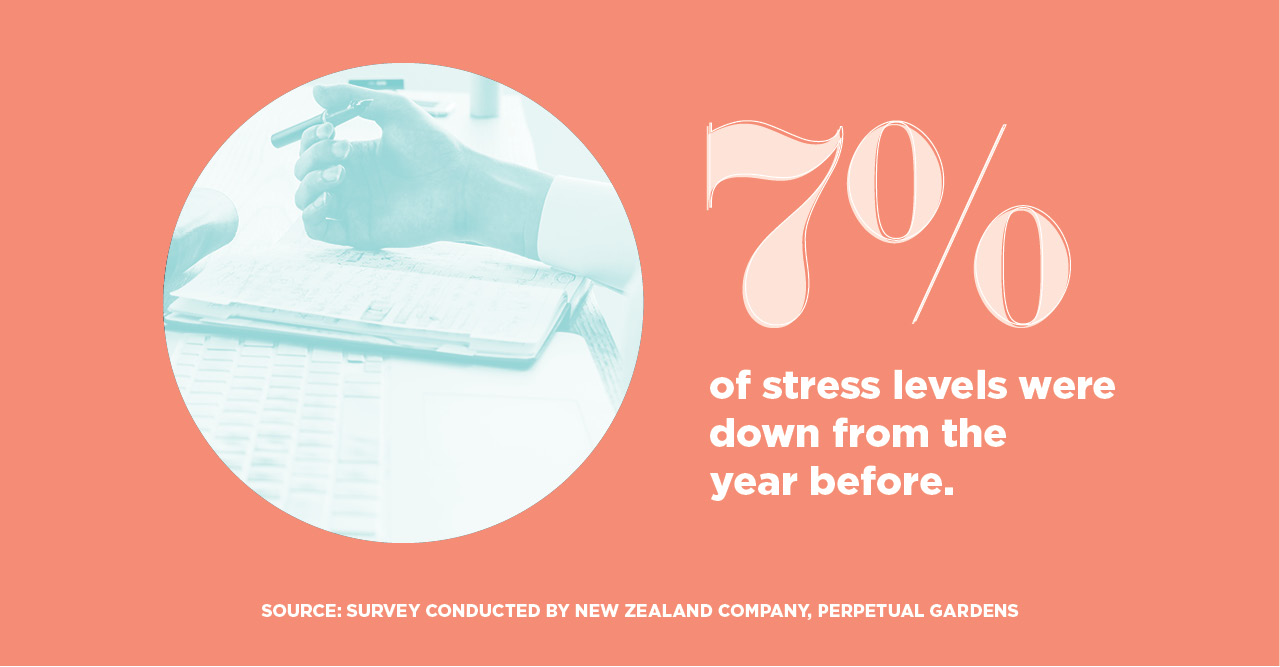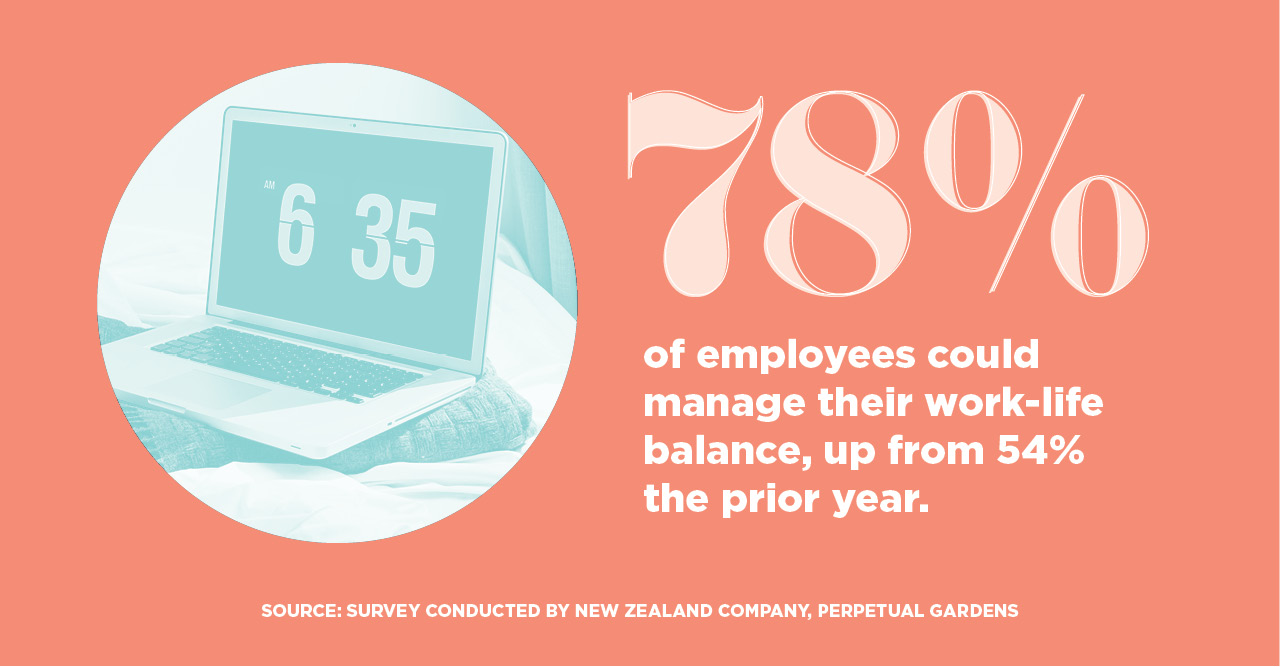You may have had to fight for Summer Fridays in your office, but soon, you may only be working four days a week.
A company in New Zealand called Perpetual Gardens, which helps people manage their wills and estates, tested out a four-day work week for two months and just released their results. Overall, they found that their 240 employees reported greater productivity, better work-life balance, and they experienced less stress.
The survey found that 78 percent of the employees could manage their work-life balance, up from 54 percent the prior year, and stress levels were down 7 percent from the year before as well. “It was just a theory, something I thought I wanted to try because I wanted to create a better environment for my team,” Perpetual Guardian
CEO Andrew Barnes told CNN. “I’m humbled that my team has responded, and they went beyond my wildest dreams.”
Work Smarter, Not Harder
The idea of a shorter work week is not a new one as
studies and surveys have shown that people are often more productive when they have less time to work smarter, not harder. Fifty-plus hour work weeks, which much of corporate America is all about these days, does not always mean higher productivity. Other companies have tested out the ideas and seen positive results—like technology education company
Treehouse ,which has had a 32-hour work week since 2006, and Reusser Design, which has a four day work week. The company works longer hours to make up for having Friday off, but the founder says that the system is working.
You can also turn to Tim Ferriss, founder of
The 4-Hour Workweek: Escape 9-5, Live Anywhere, and Join the New Rich best-selling book and school of thought which many people have adopted. However, many critics have spoken out against Ferriss’s theory, pointing out that he has only been able to accomplish [it] because he worked very hard (and probably more than five days a week) to reach a level of success which allows him to.
Dorie Clark wrote in
The Harvard Business Review, “Unfortunately, as with many American cultural obsessions, we look too quickly for the easy answer. Stymied at work? Not as engaged or productive as you’d like to be? It’s a lot simpler to blame burnout, stingy HR policies, and a lack of beach time than it is to honestly evaluate ourselves and our performance.”
“Don’t get me wrong: I’m a huge believer in the restorative and galvanizing power of vacations,
especially international travel,” Clark said. “But to earn the right to take time off, we also have to meet a few necessary preconditions in today’s competitive global marketplace.”
As remote work is becoming more ubiquitous and there is more freedom from the nine-to-five, a break from the traditional five day work week is possible but it is definitely not the norm yet. It should also be noted that New Zealand has
low labor productivity compared to other countries, according to the Organization for Economic Co-operation and Development.












